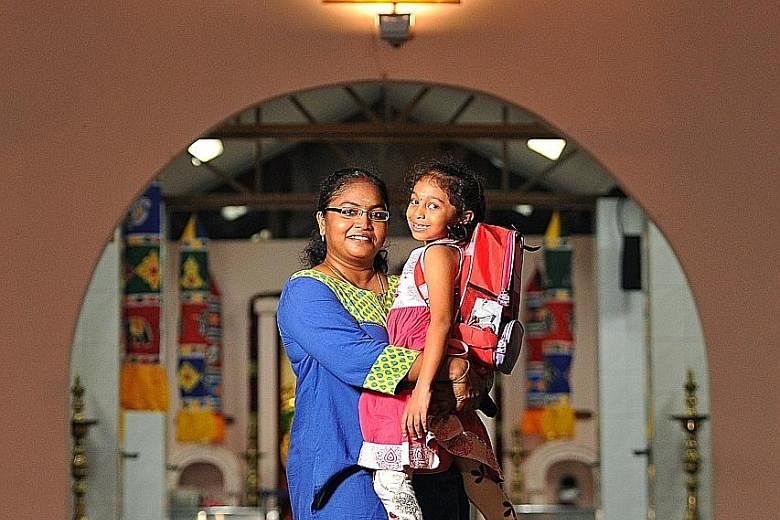The calibre of students being admitted to top secondary schools should be more even under the new PSLE grading system, said experts, and this could "level out" how these schools are perceived.
But until this "levelling out" happens, parents said they will face a bigger dilemma in choosing whether to risk aiming for a top secondary school, or go with a safer bet by picking a less popular one.
This has emerged as one of the main concerns among parents after the Education Ministry on Wednesday announced changes to PSLE grading that will kick in from 2021.
The move is part of a larger shift away from an overemphasis on academic results.
The current T-score system will be replaced by scoring bands known as Achievement Levels (AL). There will be eight bands, and the PSLE score for the Secondary 1 posting will be the sum of the ALs of four subjects. The highest score will be 4, and the lowest, 32.
The expectation is that more pupils will qualify for popular schools, and there could be more computer balloting to decide who gets a place. MOE estimates that only one in 10 will have to ballot.
Also, a pupil who lists a school as his top choice gets priority over another who places it lower - if their scores are the same.
Some parents believe this means putting a very popular school as the No. 1 choice for the child carries a bigger risk from 2021. The child could lose out on the luck of the draw and end up at a school third or fourth on his list.
A few parents are even asking for the secondary school posting exercise to be broken down into "phases", so they know how many places are left in a school after, for example, the four-pointers are allocated spots, before making their choices.
Jalan Besar GRC MP Denise Phua, who heads the Government Parliamentary Committee for Education, said the changes were a step in the right direction but added that there may be a need to fine-tune the system if more balloting is needed for popular schools.
Sociologist Paulin Straughan said it may take more than five years for the "funnel effect" - where most parents aim for a few specific schools - to end. This will be especially true for schools with more established names.
Education policy expert Jason Tan said the new system can be quite "confusing" for parents, as more secondary schools will have similar qualifying scores.
"There's a lot more pressure on them to think deeper about school choice," he said.
MOE has said it wants parents to pick schools that best serve their children's interests and strengths.
And this is a good thing.
"Instead of prematurely ruling out schools, it's better for pupils to be matched to schools that are actually just as good, where they can also grow just as much," said Associate Professor Tan, who is from the National Institute of Education.
Sales manager Grace Yong, 35, who has a son in Primary 1, said the new system will encourage her to look beyond entry scores and at the programmes being offered by schools. "We will need more time to make a thorough decision," she said.
MOE said it will be providing more information on what schools offer at a later date.
Housewife Narayana Vanisri, 38, said she hopes to find a secondary school that will help her seven-year-old daughter Thaswika pursue her interest in dance and art. School, she said, is not just about grades, but also personal growth.


